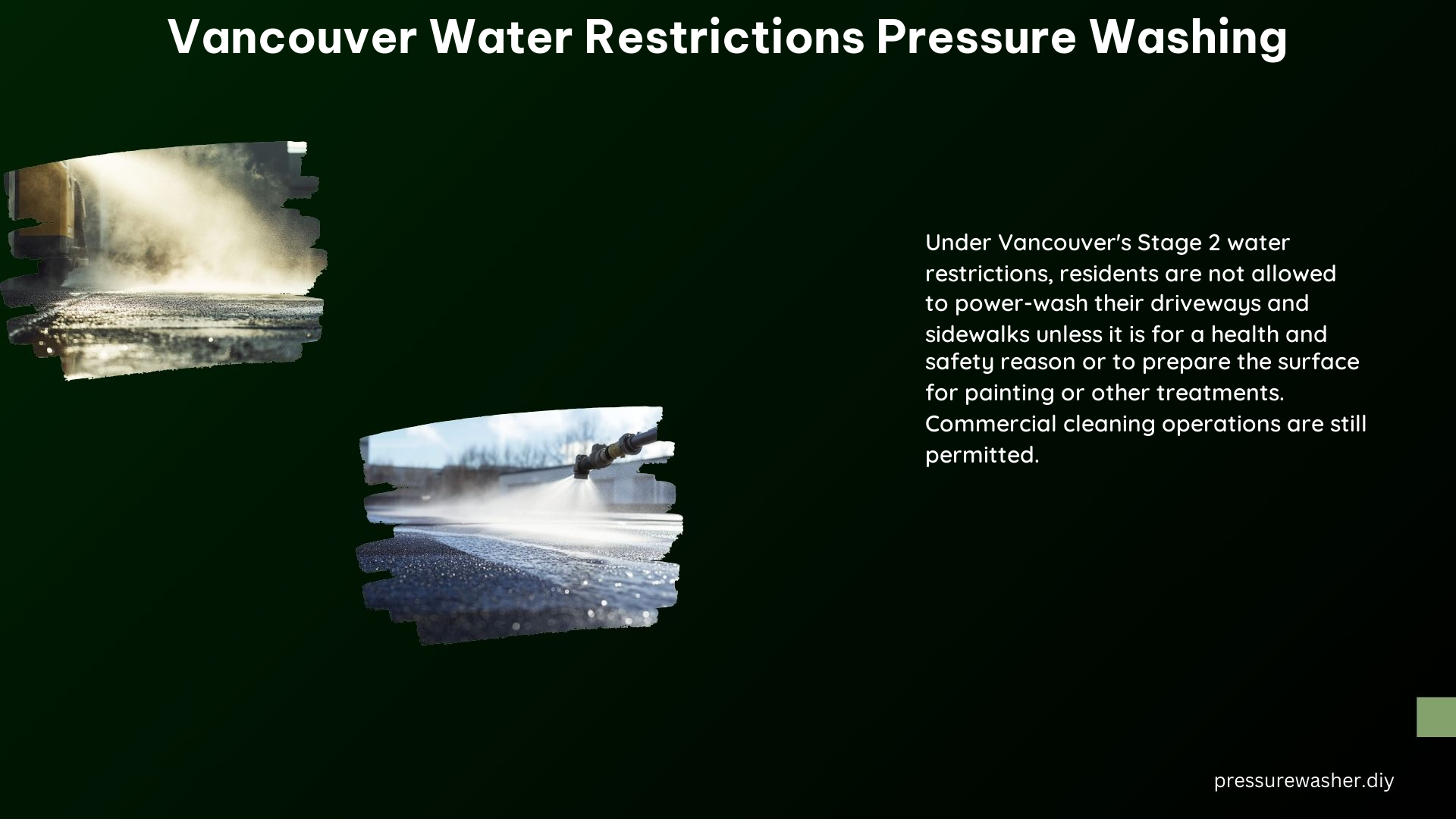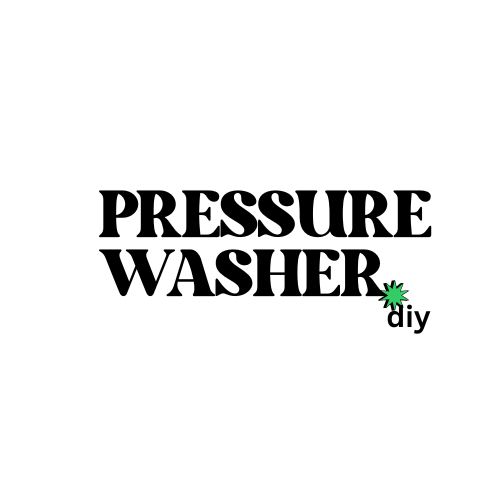In Vancouver, water conservation is a top priority, and the city has implemented strict water restrictions to ensure sustainable water usage. Under the Stage 2 water restrictions, residents must adhere to specific guidelines when it comes to pressure washing, which can have a significant impact on water consumption. This comprehensive guide will delve into the intricacies of Vancouver’s water restrictions and provide you with a detailed understanding of the dos and don’ts of pressure washing in the city.
Understanding Vancouver’s Stage 2 Water Restrictions
Vancouver’s Stage 2 water restrictions are designed to reduce water usage during the drier summer months. These restrictions are enforced from May 1st to October 15th each year and aim to conserve the city’s precious water resources.
Under the Stage 2 restrictions, residents are prohibited from using power washers for aesthetic cleaning, such as washing driveways, sidewalks, and other outdoor surfaces. However, there are a few exceptions to this rule:
- Health and Safety Reasons: Power washing is permitted if it is necessary for health and safety reasons, such as removing mold, mildew, or other hazardous substances from surfaces.
- Surface Preparation: Power washing is allowed if it is required to prepare a surface for painting or other treatments.
It’s important to note that while residential pressure washing for aesthetic purposes is restricted, commercial cleaning operations are still permitted under the Stage 2 water restrictions.
Pressure Washing Techniques Allowed Under the Restrictions

Even though the use of power washers for aesthetic cleaning is limited, there are alternative pressure washing techniques that residents can employ to maintain their outdoor surfaces without violating the water restrictions.
Low-Pressure Washing
One of the approved methods for cleaning outdoor surfaces is low-pressure washing. This technique uses a garden hose with a low-pressure nozzle or attachment to gently clean surfaces without consuming large amounts of water.
The recommended water pressure for low-pressure washing is typically between 100 and 500 PSI (pounds per square inch). This gentle approach is effective for removing light dirt, debris, and grime without causing damage to the surface.
Bucket and Brush Cleaning
Another water-efficient method for cleaning outdoor surfaces is the bucket and brush technique. This involves using a bucket of soapy water and a scrub brush to manually clean the desired area. This method is particularly effective for spot cleaning and can be used on a variety of surfaces, including driveways, sidewalks, and patios.
Eco-Friendly Cleaning Solutions
To further reduce water usage, residents can opt for eco-friendly cleaning solutions that are designed to work effectively with minimal water. These solutions often contain biodegradable ingredients and can be applied with a low-pressure sprayer or a bucket and brush.
Pressure Washing Equipment Considerations
When it comes to pressure washing equipment, it’s essential to choose the right tools that comply with the Stage 2 water restrictions in Vancouver.
Pressure Washers
If you need to use a pressure washer for approved purposes, such as health and safety or surface preparation, it’s important to select a model with adjustable pressure settings. Look for pressure washers with a maximum output of 500 PSI, as this will ensure compliance with the water restrictions.
Nozzles and Attachments
The type of nozzle or attachment you use with your pressure washer can also impact water usage. Opt for low-pressure nozzles or adjustable spray wands that allow you to control the water flow and pressure.
Water Reclamation Systems
For commercial cleaning operations that are still permitted under the Stage 2 restrictions, consider investing in a water reclamation system. These systems capture and filter the used water, allowing it to be reused for subsequent cleaning tasks, reducing overall water consumption.
Compliance and Enforcement
To ensure compliance with the Stage 2 water restrictions, the City of Vancouver actively enforces the regulations. Residents and commercial operators who violate the restrictions may face fines and other penalties.
Reporting Violations
If you suspect a neighbor or a commercial business is not adhering to the water restrictions, you can report the violation to the City of Vancouver. The city has a dedicated hotline and online reporting system to handle such complaints.
Penalties for Non-Compliance
The penalties for violating the Stage 2 water restrictions can be quite severe. Residential offenders may face fines ranging from $250 to $10,000, depending on the severity of the infraction. Commercial operators can be subject to even higher fines, as well as the potential revocation of their business licenses.
Conclusion
Vancouver’s Stage 2 water restrictions are a crucial part of the city’s efforts to conserve its water resources. By understanding the guidelines and adhering to the approved pressure washing techniques, residents and commercial operators can do their part in supporting sustainable water usage in the city.
Remember, the key to compliance is to use low-pressure washing methods, eco-friendly cleaning solutions, and water reclamation systems where applicable. By following these best practices, you can maintain the cleanliness of your outdoor surfaces while respecting the water conservation efforts in Vancouver.
Reference:
– City of Vancouver Water Restrictions
– Vancouver Bylaw Enforcement
– Water Conservation in Vancouver
